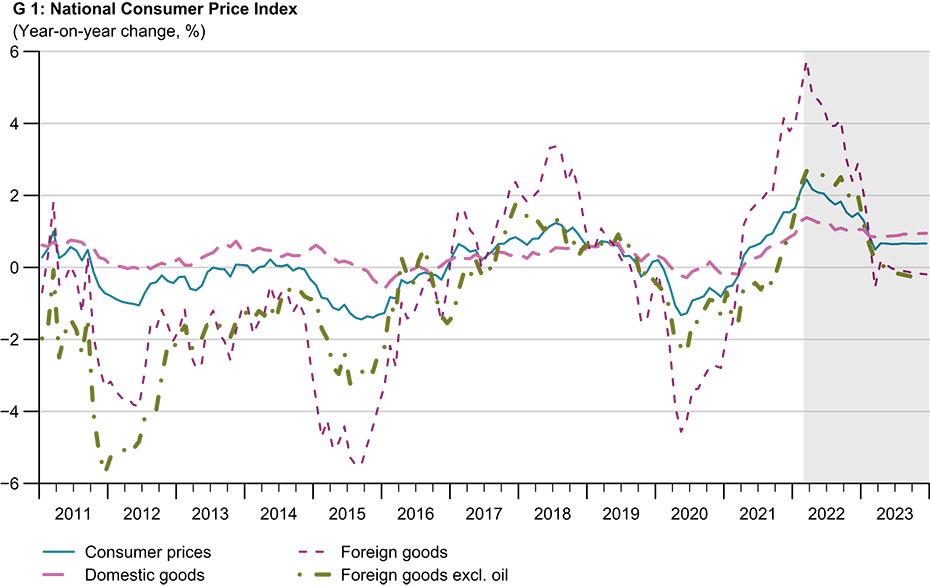Inflation picks up significantly worldwide but remains moderate in Switzerland
- KOF
- Energy
- Inflation
- KOF Bulletin
Prices in the euro area and especially in the United States have risen sharply recently. Inflation momentum has also picked up in Switzerland. However, KOF expects the upward trend in prices in Switzerland to weaken towards the end of the year.

Inflation in Switzerland, as measured by the national consumer price index (CPI), rose to 2.4 per cent in March 2022 from 1 per cent in December (Chart G 1). Energy and fuel prices surged. The price of products affected by production and supply shortages, such as cars and home furniture, also rose, as did the price of tourist goods, such as air travel and accommodation. In Switzerland, however, the increase in inflation was significantly lower than that in other currency areas (US 7.9 per cent (February) and euro area 7.5 per cent (March)). This means that the traditional inflation differential is particularly pronounced at the moment. This is partly due to the more modest contribution of energy and food prices to inflation, which alone amounted to almost four percentage points in the euro area. Another major reason is the appreciation of the Swiss franc, which is reducing import inflation. Excluding volatile energy and food prices, inflation remained at 1.6 per cent (US 6.4 per cent (February) and euro area 3.0 per cent (March)).

Considerable uncertainty about price trends
There is currently a high degree of uncertainty around the outcome of the war in Ukraine and the associated levels of energy prices, which are fluctuating sharply in line with the latest news. In its favourable scenario, KOF expects the oil price to stabilise at 100 dollars per barrel and that there will be no disruption to gas supplies. In its negative scenario, there will be greater supply shortages and much sharper rises in energy prices. The war in Ukraine is also likely to exert further price pressures on some food and commodities.
Inflation will remain at elevated levels over the coming months, moderating again towards the end of the year. Production and supply shortages are expected to ease over the course of the year. Strong labour market conditions and rising nominal wages will push core inflation next year higher than previously predicted. The inflation forecast is edging up significantly. KOF now expects inflation to average 1.9 per cent this year and 0.7 per cent next year. In its negative scenario, inflation will rise even more sharply in the current year but will return to the range that the Swiss National Bank (SNB) defines as price stability in 2023.
Contact
KOF Konjunkturforschungsstelle
Leonhardstrasse 21
8092
Zürich
Switzerland
